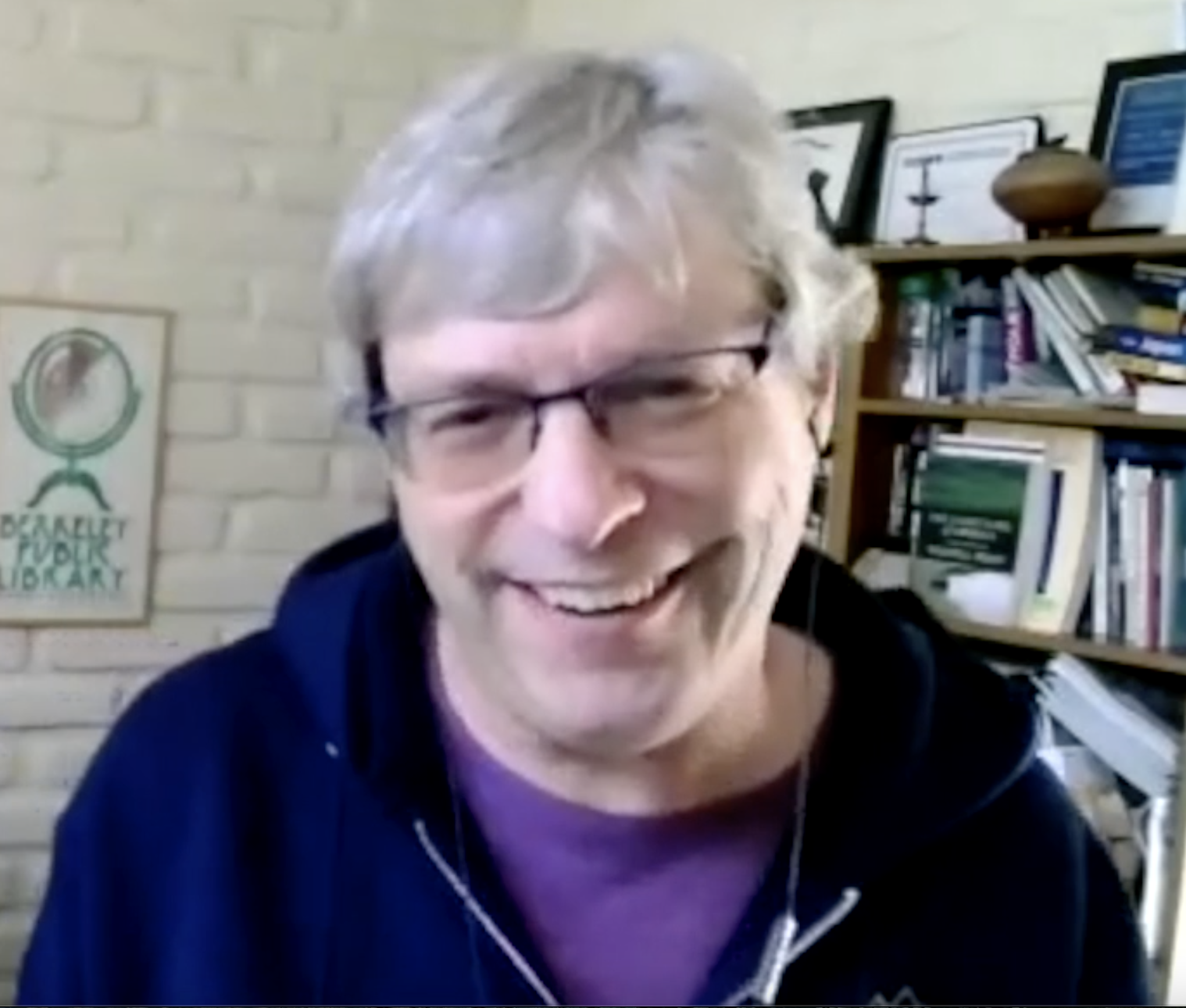Peter Mayer, a well-known legend in the water industry, has shared his water expertise and insight with Flume to help us achieve our goal of bringing water data to life. We couldn’t wait to sit down with Peter to share his wealth of knowledge with you: discussing past, present and future changes in water conservation, the upcoming and ongoing drought, and how we can best do our part to conserve water. A big thank you to Peter for taking the time to share his wisdom with us!
Background: Peter is a professional engineer and urban water expert in the areas of water use, water efficiency, demand management, and water resource planning. For more than 25 years, Peter’s work has focused on urban water management, researching water use patterns, assessing the impact of water rate structures, evaluating water efficiency measures and programs, forecasting future demand with and without conservation, preparing water demand management plans and conducting water supply scenario analysis.
The Interview: To start, we asked Peter about his start in water and his extensive experience in the water industry. After numerous years working as a water researcher and consultant, Peter went on to found WaterDM (Water DemandManagement) — a water consulting company focused on planning and managing water demand. WaterDM has partnered with numerous water providers, governments, and companies across North American to help them manage the fluctuating demand for water:
“Water is unlike any other resource. You cannot make more of it. The ability to adapt our usage overtime is a very important concept. I wanted to use this consulting firm to develop this idea of demand management and to prompt it.”
After 25 incredible years in the water industry, Peter is still driven by his love for water. When asked what fuels his passion for water, Peter said:
“I’m an environmentalist at heart. What motivates me is a deep concern for the planet and the environment, a belief that the natural world is really important for human beings [to] preserve for the future. Water is the most fundamental component of all life. It’s a fascinating thing, culturally, physically, every way you can think about water. It really became a passion for me out of a variety of different areas.”
Throughout his extensive career in the water industry, Peter has witnessed quite a bit of change, both in the way consumers and utilities approach water conservation.
“You had a hard time convincing people that water conservation was really going to work.”
Recalling the attitude towards water conservation in the 1990’s, Peter remembers:
“People didn’t believe that water usage could be reduced. Collecting data on where people use water was really important in establishing that water conservation really is a management alternative that utilities can pursue.”
Peter attributes the creation of WaterSense as the most impactful change in approach towards water conservation. WaterSense, a program created by the Environmental Protection Agency in 2006, helps to promote efficient water use by partnering with companies and organizations to research, test, and create efficient household water appliances.
We discussed the on-going and upcoming drought with Peter, asking him what he believed consumers can do to take a more active role in drought preparation:
“Most consumers don’t know where to start. The first thing to do is…
- Make sure you don’t have any big leaks. Big leaks happen infrequently, but if you don’t catch them quickly they are by far the biggest waste of water. Anyone who has a Flume and is thinking about that, I greatly applaud them. That’s a tremendous first step.
- The next thing to do is to assess the level of efficiency of your indoor fixtures and appliances. [For Example] If your toilet is a newer toilet, it can be saving you as much as 10,000 gallons per year.
- The other big one to think about…is the clothes washer. Having an efficient clothes washer both reduces water and energy.
- On the outdoor side, make sure your irrigation system is tuned up and not wasting water. You can do this by checking for irrigation leaks, knowing the optimal times to water, and utilizing a smart irrigation controller.”
Last, Peter recommended:
“Understand whether you’re doing okay or not…. If you don’t know how much you’re doing, you can’t do much of anything.”
Knowing how much water you’re using is the best place to start your water conservation.
Peter explored the ways in which consumers and water providers can work together to prepare for the drought:
“One of the things consumers can do is support their utilities when they say we have to do [water restrictions and surcharges]. They [the consumers] can understand that we’re all in this together.”
Peter went on to discuss the ways in which utility interactions with water and consumer interactions with water may change as we brace for the drought:
“Climate change is the single biggest challenge [for water providers]. It’s going to impact every aspect of the water utility and how they function. [On the consumer side] we’re going to have to pay attention. But we have things like Flume that are going to help us a lot. If [your water usage] is normal, then you’re fine. But if something goes wrong like you have a leak or your irrigation malfunctions, then you’re going to start to get an alert. More and more we’ll have ways of notifying people when something is abnormal.”
Overall, Peter is optimistic about the ongoing and upcoming drought. Equipped with tools, data, and knowledge, utilities and consumers alike are prepared and ready to conserve; working together to conserve our water will be what gets us through the drought.
“In order to conserve water, it takes everybody.”
Peter told Flume:
“It’s not something that can be achieved by guys in an office, it’s not something that can be achieved by one person who takes out their lawn. It’s a communal effort. Everybody needs to be in it and focused and together.”



